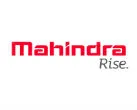Mahindra #SparkTheRise Twitter Conference addresses key issues on 'Water Sustainability'

The Mahindra #SparkTheRise Twitter conference took place on March 7, 2013 wherein experts were brought together to discuss Water Sustainability. In this three-hour (IST 6PM-9PM) global discussion, experts and the curious discussed about the various issues pertaining to rain water harvesting, providing affordable clean drinking water, among others. The conference had been split in three one hour back-to-back sessions, hosted by Mahindra and Ashoka India. The following experts joined the chat and some very useful insights:Naandi Foundation
Founded in 1998, Naandi Foundation’s work focuses on three key sectors: Safe Drinking Water, Sustainable Livelihoods, and Children’s Rights, Naandi Foundation’s ‘Safe Drinking Water’ programme brings the assurance of certified safe drinking water through the installation of community drinking water plants, that can reliably and in a cost effective way, address the water contamination issues in a village.
Anoop Rao, COO, Naandi Foundation talked via the Twitter handle @naandi_india. Some of the questions that he addressed revolved around the challenges in driving behavioral change in the communities, whether a private-public divide be bridged to overcome barriers in allowing access safe drinking water, among others.
Anoop also discussed how Naandi Foundation is working towards a holistic approach to this issue, and simultaneously working towards eliminating poverty. He explained how the proliferation of sustainable households can go a long way in reducing groundwater consumption.
@Zenrainman is the founder of the Rainwater Club, a Bangalore-based group that promotes and provides information on rainwater harvesting.
Being an expert on rainwater harvesting, he discussed whether people needed specific knowledge for implementing rainwater harvesting techniques, and how can the water quality be maintained at a small scale in the rural areas.
He stressed on the fact that the initial capital cost and government assurances of piped supply of water stopped people from employing rainwater harvesting systems. He also shared some interesting facts: In Chennai there are over 500,000 rainwater harvesting structures, In Bangalore over 50,000 at least, and that water harvesting has been traditional in Jaisalmer /Jodhpur with 150 mm rain, and in Gansu in China at 250 mm rain. He explained this in context that rainwater harvesting is also being practised by individuals in regions that received considerably less rainfall.
Paul Polak is the founder of Colorado-based non-profit International Development enterprises (IDE)—dedicated to developing practical solutions that attack poverty at its roots. He has authored the popular book- OutOfPoverty. The Twitter chat directed some questions related to safe drinking water as a business, reason of failure for traditional methods, the impact of his work and some key learning on working with poverty. Paul initiated the chat with laying out a few points: The 2.7 billion people in the world who live on less than $2/day represent a huge opportunity to create profitable new markets, and that scalable profitable business is the only way we can make safe drinking water available at scale. This goes on to show the potential in the space.
He put forth another thought where he said that saving water was one way of harvesting it. So, if efforts are concentrated on ways to save water instead of building infrastructure for harvesting it, the ultimate result is the same.
The interaction with these individuals indeed proved fruitful to the people interested in learning about various rainwater harvesting techniques, challenges faced by institutions and individuals working the in this social segment, and the path that can be charted for a sustainable implementation of the best practices.
All in all a very fruitful conversation, the Twitter conference was a great success with 272 contributors tweeting 1338 times with the hashtag #SparkTheRise. Detailed analysis can be found here and the storified version here.






